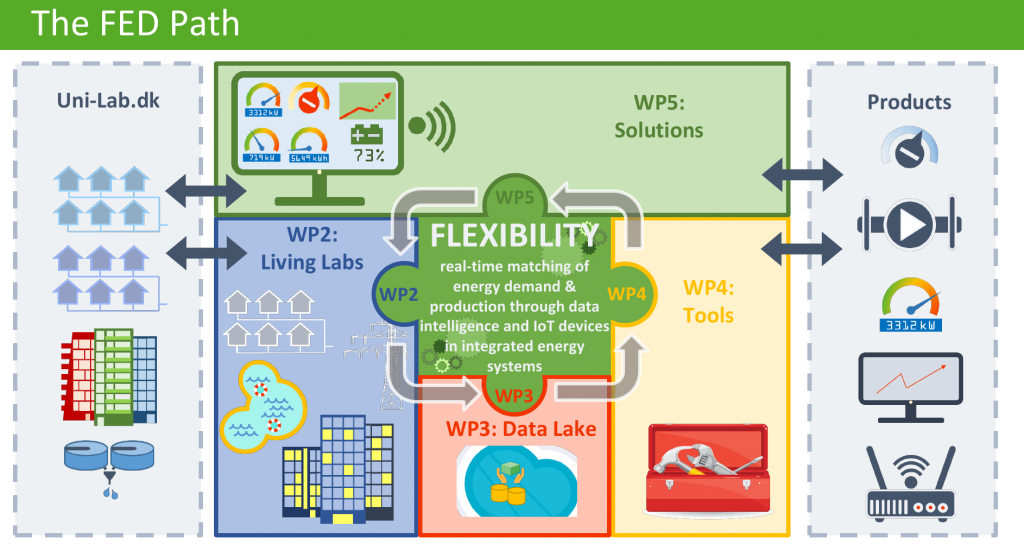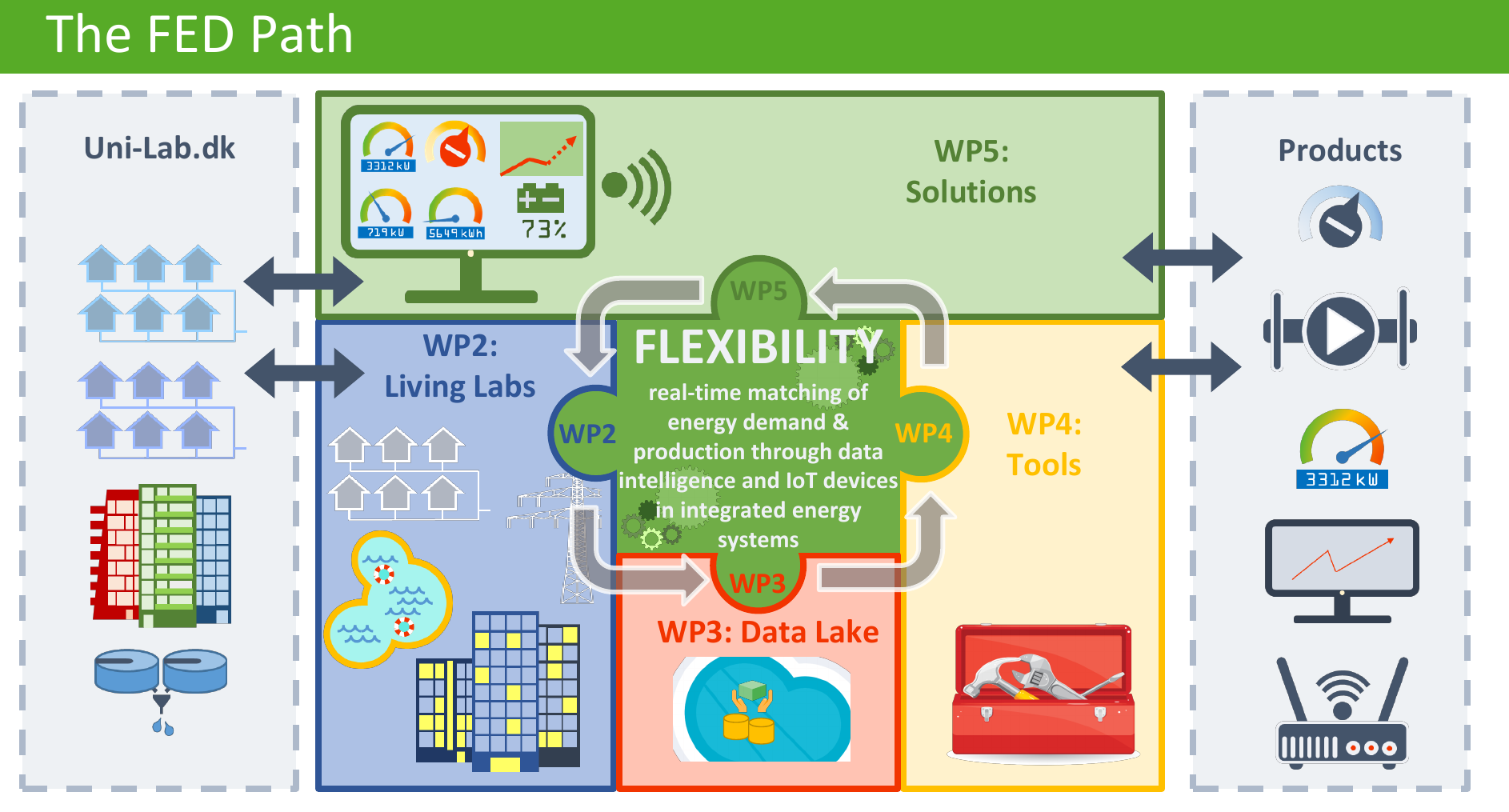
Flexible Energy Denmark (FED) is a new 44 mill dkr project, funded primarily by Innovation Fund Denmark, and proactive players in the Danish electricity sector.
According to the scientific project leader, Professor Henrik Madsen (DTU Compute), aims at establishing a national digital infrastructure for the near 100 pct fossil-free society:
This infrastructure is built on leading expertise related to data lakes, advanced statistics, AI, big data analytics, cloud/fog/edge computing and IoT technologies. In the FED project the solutions will be demonstrated at seven living labs at different locations in Denmark.
The solutions will provide the digital backbone and data-intelligence sphere of Center Denmark, which is a new national digitalization hub for smart energy systems with a coupling to the food and water sectors. Center Denmark is lead by eg. Energinet.dk, EWII, and all technical universities in Denmark, ie. DTU, AAU, AU and SDU. The solutions are built on important initiatives like the IEA ECB Annex 67, lead by Danish Technological Institute, as well as leading smart energy research projects like CITIES (Center for IT-Intelligent Energy Systems) and DiCyPS (Center for Data-Intensive Cyber-Physical Systems).
The solutions will provide the digital backbone and data-intelligence sphere of Center Denmark, which is a new national digitalization hub for smart energy systems with a coupling to the food and water sectors.
Center Denmark is lead by eg. Energinet.dk, EWII, and all technical universities in Denmark, ie. DTU, AAU, AU and SDU. The solutions are built on important initiatives like the IEA ECB Annex 67, lead by Danish Technological Institute, as well as leading smart energy research projects like CITIES (Center for IT-Intelligent Energy Systems) and DiCyPS (Center for Data-Intensive Cyber-Physical Systems).
The transition to a low-carbon society based on intermittent renewable energy sources calls for a change to an energy system where the demand follows the production. This requires a development of new methods to enable flexibility at all levels of the energy system of the modern society. At the same time the system is evolving from a centralized system into a complex set of integrated systems at scales that includes customers, cities and regions. Due to the complexity, the real time matching of energy demand with production has to take place through data analytics and IoT devices in integrated energy systems.
The objective of FLEXIBLE ENERGY DENMARK (FED) is to unlock, describe and test energy flexibility at all levels, by empowering integrated energy systems using digitalizations and data intelligence. We establish a new nationwide data platform of connected Living Labs (Uni-Lab.dk – upcoming) facilitating the coupling of existing domain specific labs and enabling new synergies. FED will provide data intelligent tools and solutions for Center Denmark (CD) which will host Uni-Lab.dk. The FED digitalization addresses all steps of the value chain from sensors to analysis to decision support.
FED creates innovative solutions based on Uni-Lab.dk data, state-of-the-art tools and existing and new products from leading industry partners. FED provides data, AI and IT methodologies enabling the industry to be highly competitive in the digitalization of the energy systems. Hence, FED provides the foundation for a national leadership on green innovation.
FED supports the industrial partners to advance their PRODUCTS to the next generation of data-intelligent solutions and test them in a representative environment of Living Labs (Uni-Lab.dk). Thereby, drastically reducing the time-to-market for the new solutions (Fig. 1). FED creates new knowledge about energy flexibility to be used for both green innovations (product level) and the green transition (policy level).
Our tools are data-driven exploiting data from several energy systems. Heterogeneous data from 7 Danish Living Labs and industrial partners are collected into an integrated open data lake. The lab-activities in FED provide the foundation for a Danish chapter of the international, smart energy UNILAB (named Uni-Lab.dk) combining proof-of-concept and demonstration with a unique possibility to scale up the algorithms and develop them to fit the needs of the Danish and the International society.
Furthermore, this Digitalisation of heterogeneous data into the data lake allows the implementation of fast and standardised evaluation procedures. The process continues as an iterative cycles: Based on measurement in Uni-Lab.dk and on the impact of our solutions, we feed the data lake with new data and further develop improve tools, products (indirectly) and solutions which again are tested under real life conditions in Uni-Lab.dk.
Fact: CITIES – Centre for IT Intelligent Energy Systems
CITIES is a joint initiative by pioneers dedicated to pave the way for the green transition towards a 100% renewable energy system in Denmark across traditional boundaries using smart IT systems and data science. The partners of CITIES include actors from the Danish industry, academia and public sector.

